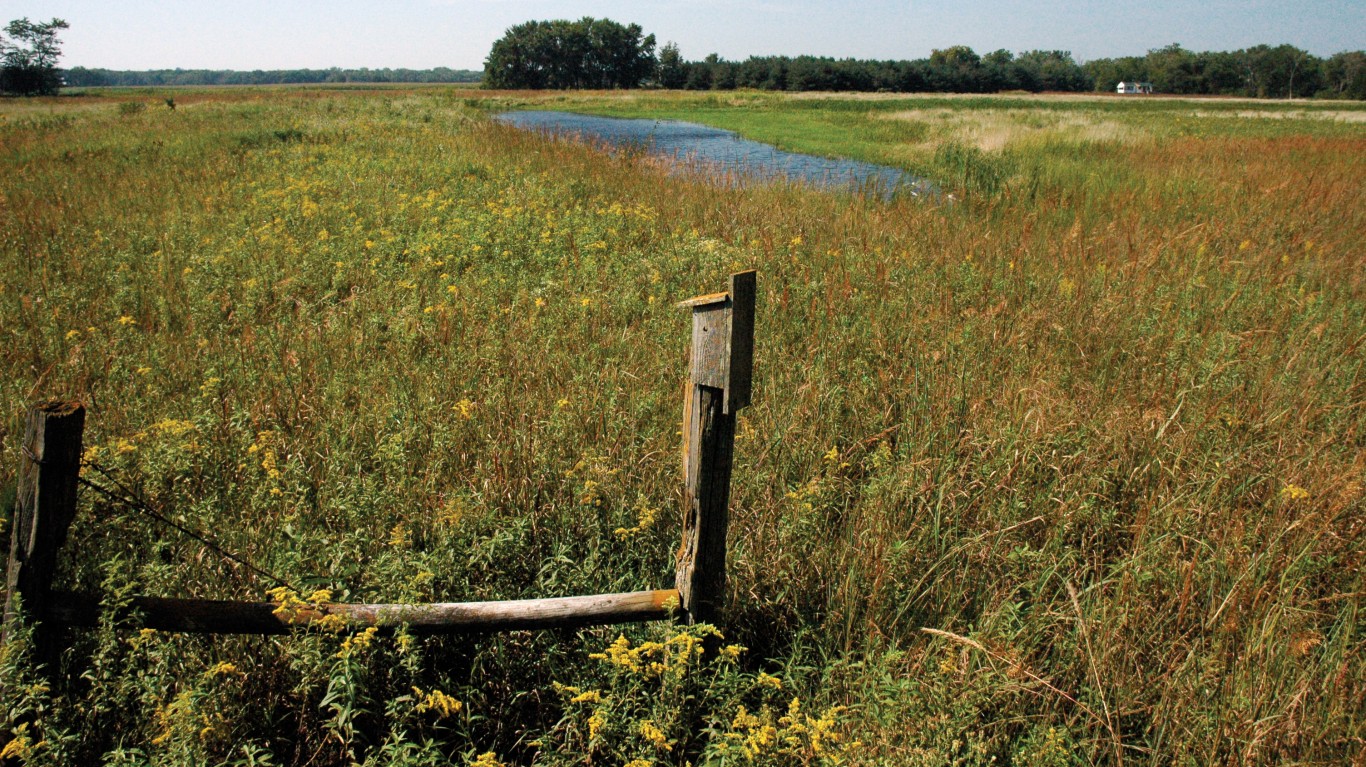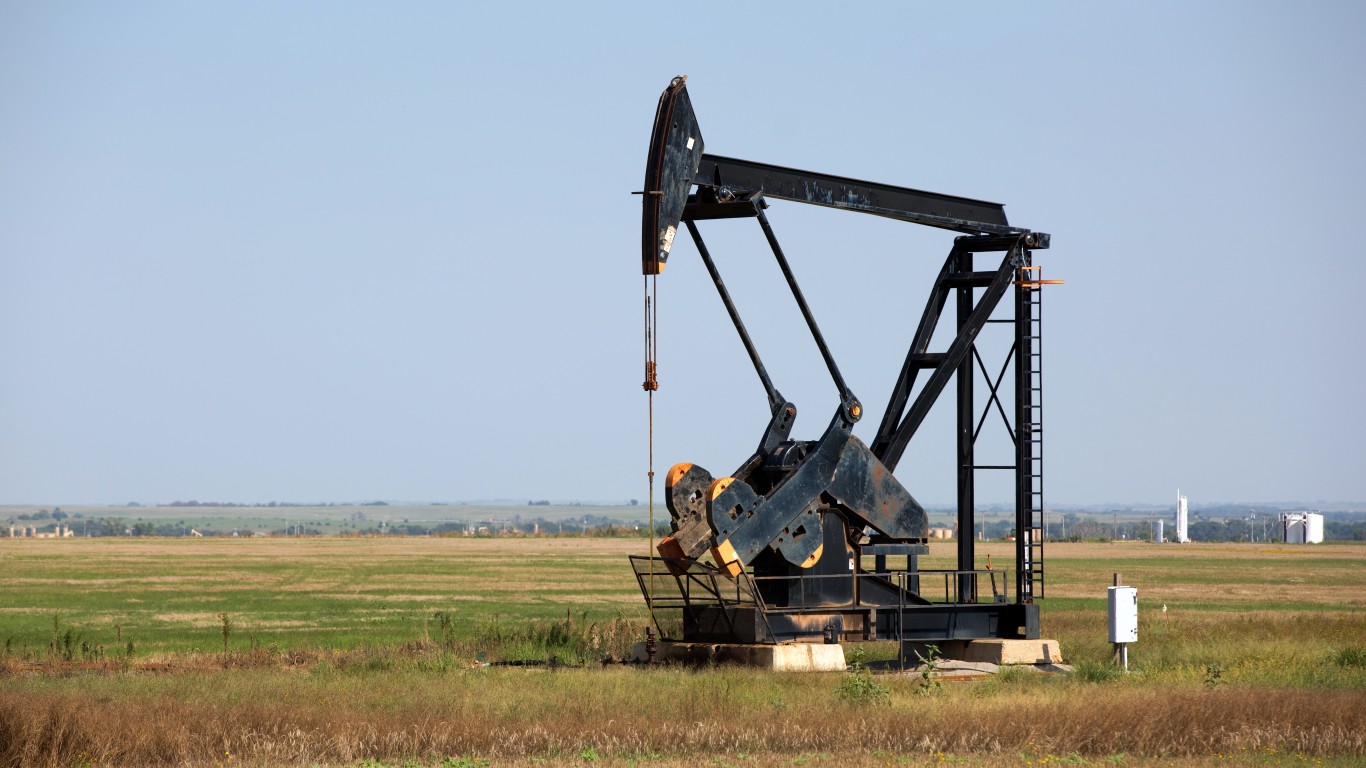
The oil industry faced unprecedented challenges in 2020. Due in large part to the COVID-19 pandemic, demand for oil dipped for the first time in over a decade, down by over 9 million barrels per day. With it, oil production also dropped by 6.6 million barrels per day.
Still, an average of more than 88 million barrels were produced worldwide each day in 2020. The vast majority of this production took place in just 15 countries. In addition to having the highest production output in 2020, these 15 countries have a combined 1.6 trillion barrels of oil in their reserves.
To determine the countries that control the world’s oil, 24/7 Wall St. reviewed data on oil reserves from oil and gas company BP’s “Statistical Review of World Energy 2021.” Countries were ranked based on proved reserves as of 2020.
The 15 countries with the most oil are spread across five different continents, though the majority are located in the Middle East and North Africa regions. The other countries tend to be very large, as the more land area a country has, the more likely some of it sits on top of a large deposit of oil.
Oil is one of the most valuable and widely used commodities in the world, and countries with large supplies tend to be very wealthy. The economies of several nations on this list are almost wholly powered by the oil industry, and they rank among the richest countries in the world.
Click here to see the 15 countries that control the world’s oil
Click here to read our detailed methodology
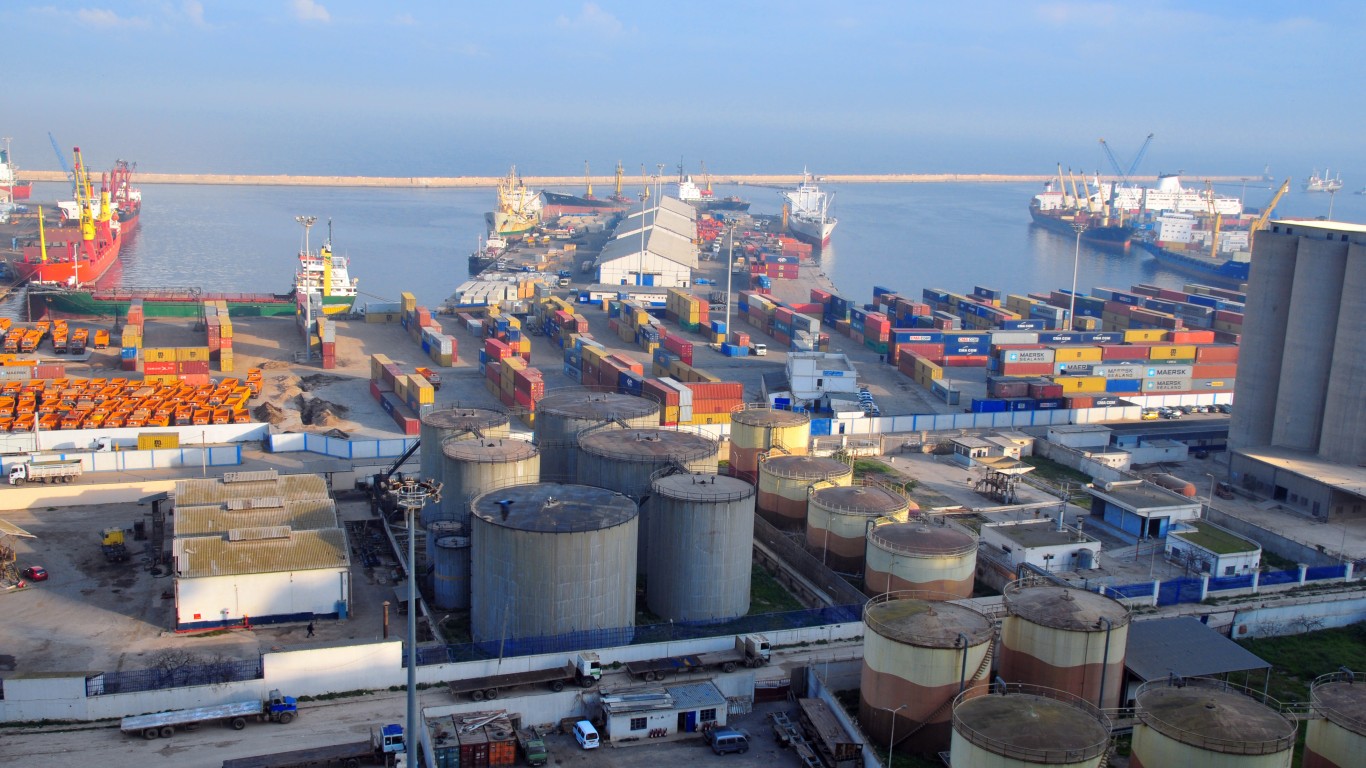
15. Algeria
> Proved oil reserves: 12.2 billion barrels
> Reserves as a share of world total: 0.7%
> 2020 oil production: 1.3 million barrels per day
> 2020 GDP per capita: $11,268
> 2020 oil exports as pct. of GDP: 14.4%
[in-text-ad]
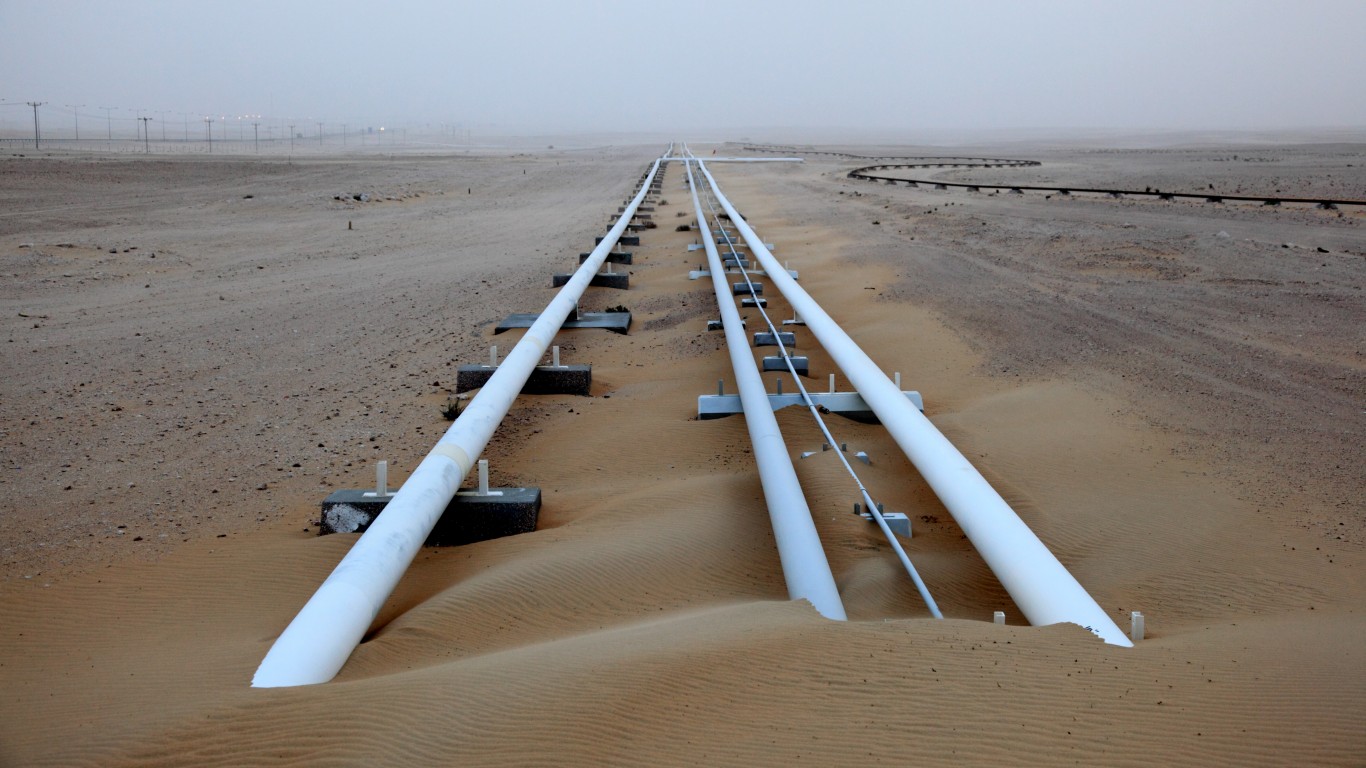
14. Qatar
> Proved oil reserves: 25.2 billion barrels
> Reserves as a share of world total: 1.5%
> 2020 oil production: 1.8 million barrels per day
> 2020 GDP per capita: $89,949
> 2020 oil exports as pct. of GDP: 16.9%
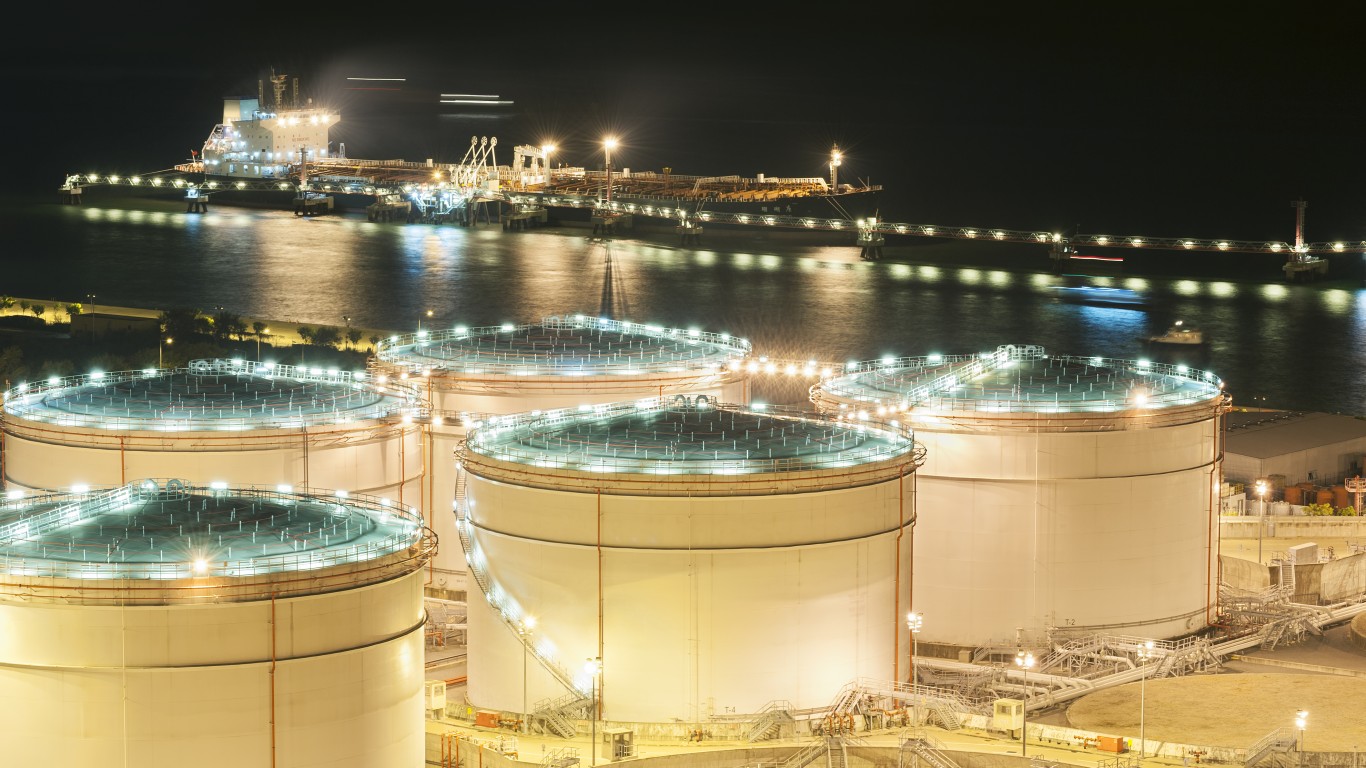
13. China
> Proved oil reserves: 26.0 billion barrels
> Reserves as a share of world total: 1.5%
> 2020 oil production: 3.9 million barrels per day
> 2020 GDP per capita: $17,312
> 2020 oil exports as pct. of GDP: 0.4%
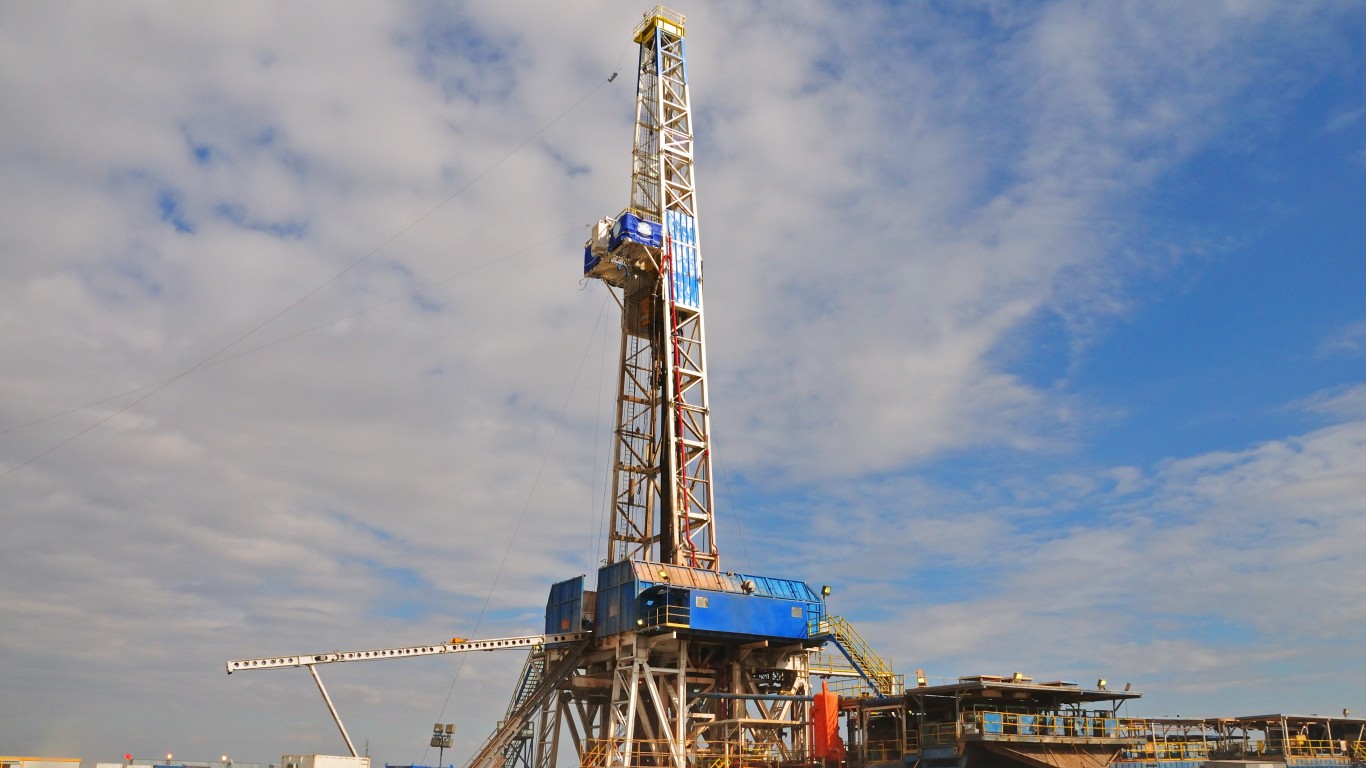
12. Kazakhstan
> Proved oil reserves: 30.0 billion barrels
> Reserves as a share of world total: 1.7%
> 2020 oil production: 1.8 million barrels per day
> 2020 GDP per capita: $26,729
> 2020 oil exports as pct. of GDP: 13.8%
[in-text-ad-2]
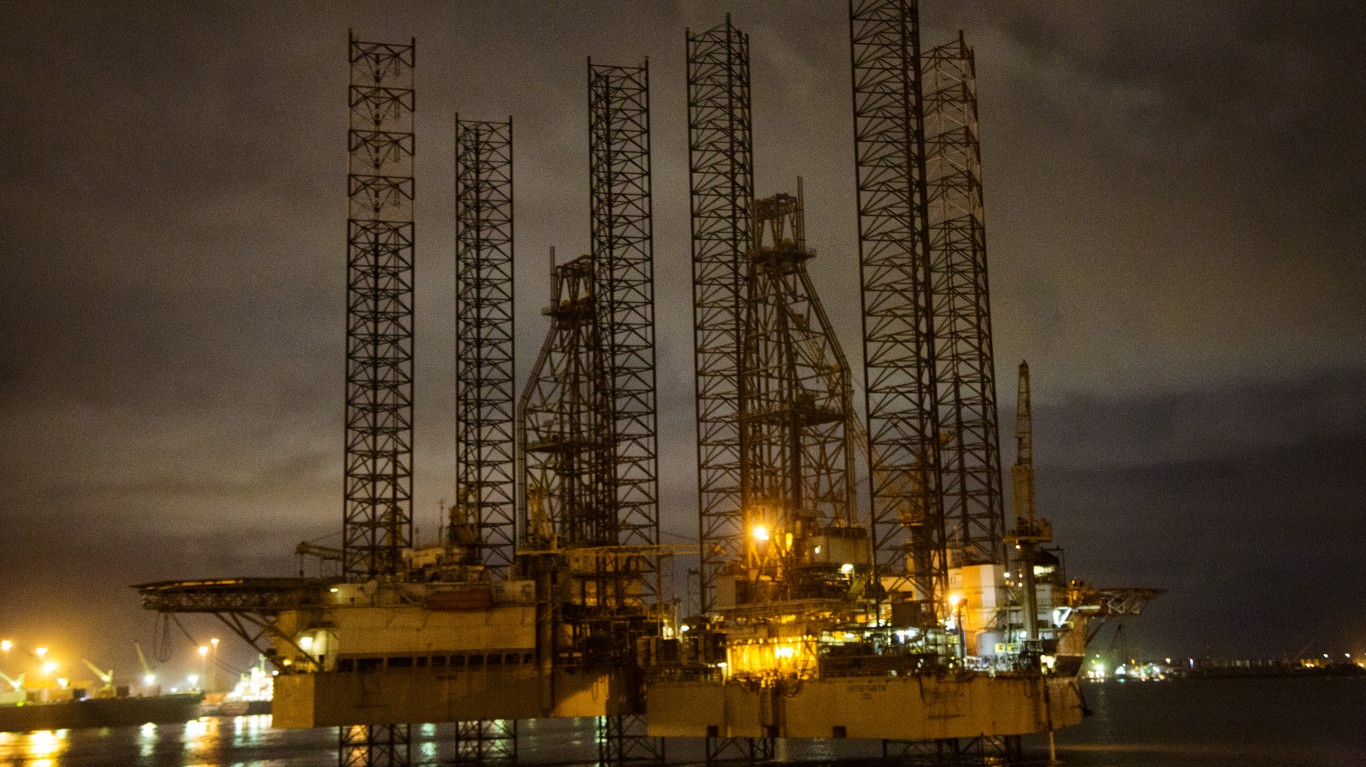
11. Nigeria
> Proved oil reserves: 36.9 billion barrels
> Reserves as a share of world total: 2.1%
> 2020 oil production: 1.8 million barrels per day
> 2020 GDP per capita: $5,187
> 2020 oil exports as pct. of GDP: 7.4%
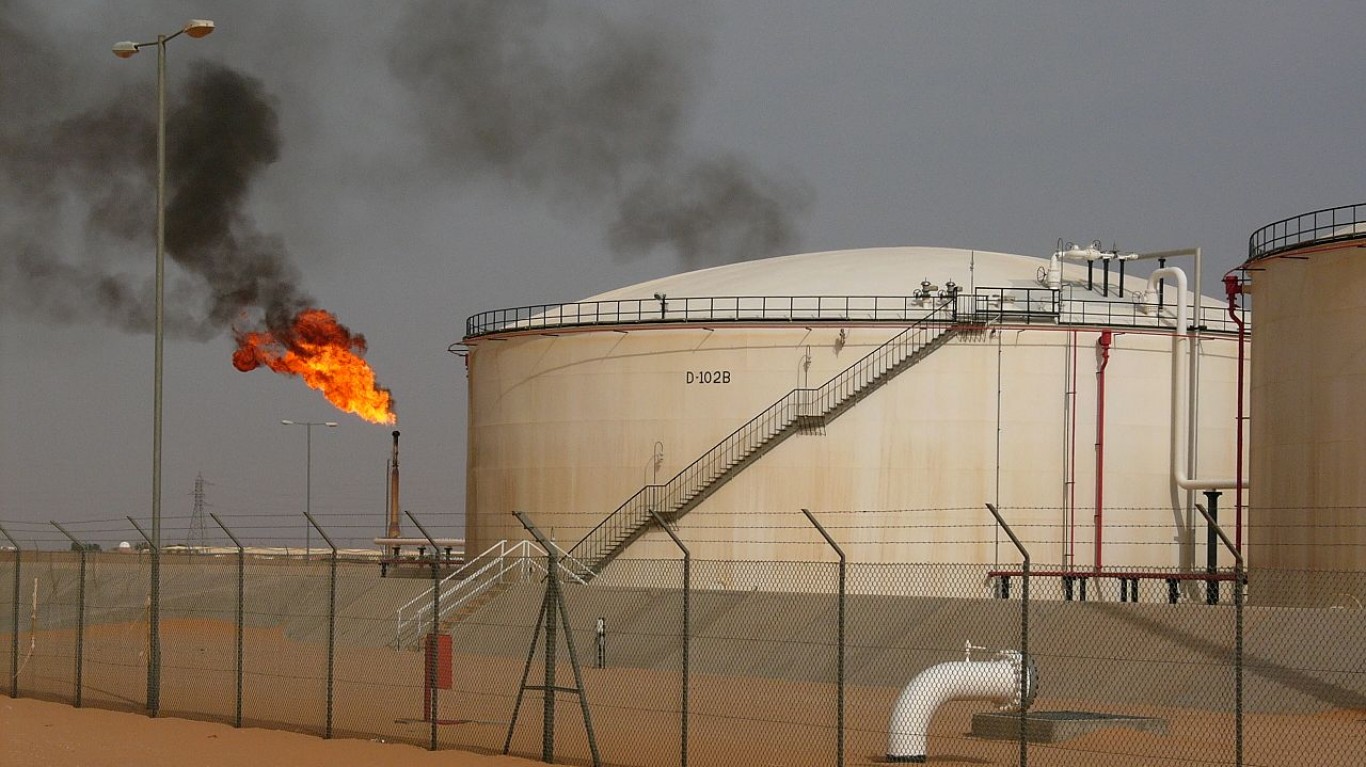
10. Libya
> Proved oil reserves: 48.4 billion barrels
> Reserves as a share of world total: 2.8%
> 2020 oil production: 389,596 barrels per day
> 2020 GDP per capita: $10,847
> 2020 oil exports as pct. of GDP: 43.9%
[in-text-ad]

9. United States
> Proved oil reserves: 68.8 billion barrels
> Reserves as a share of world total: 4.0%
> 2020 oil production: 16.5 million barrels per day
> 2020 GDP per capita: $63,544
> 2020 oil exports as pct. of GDP: 0.4%
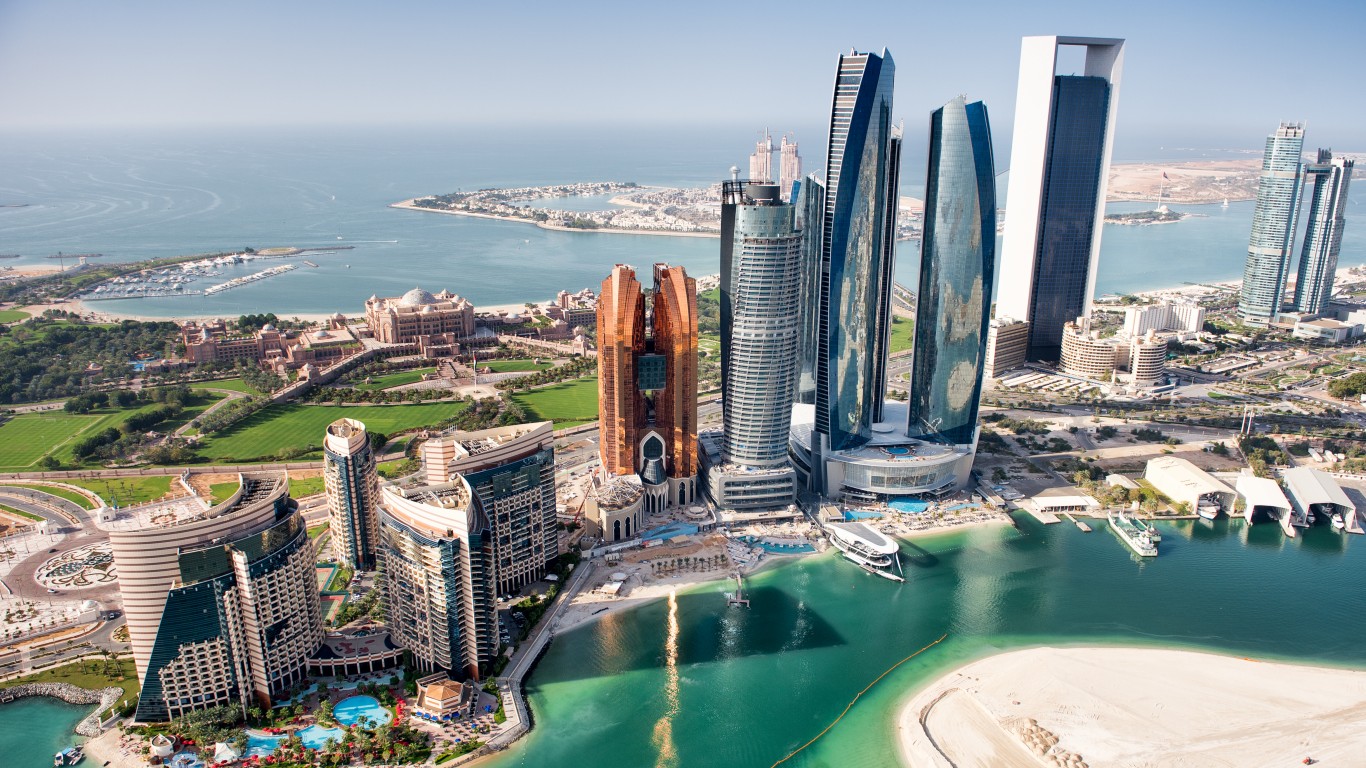
8. United Arab Emirates
> Proved oil reserves: 97.8 billion barrels
> Reserves as a share of world total: 5.6%
> 2020 oil production: 3.7 million barrels per day
> 2020 GDP per capita: $69,958
> 2020 oil exports as pct. of GDP: 16.2%
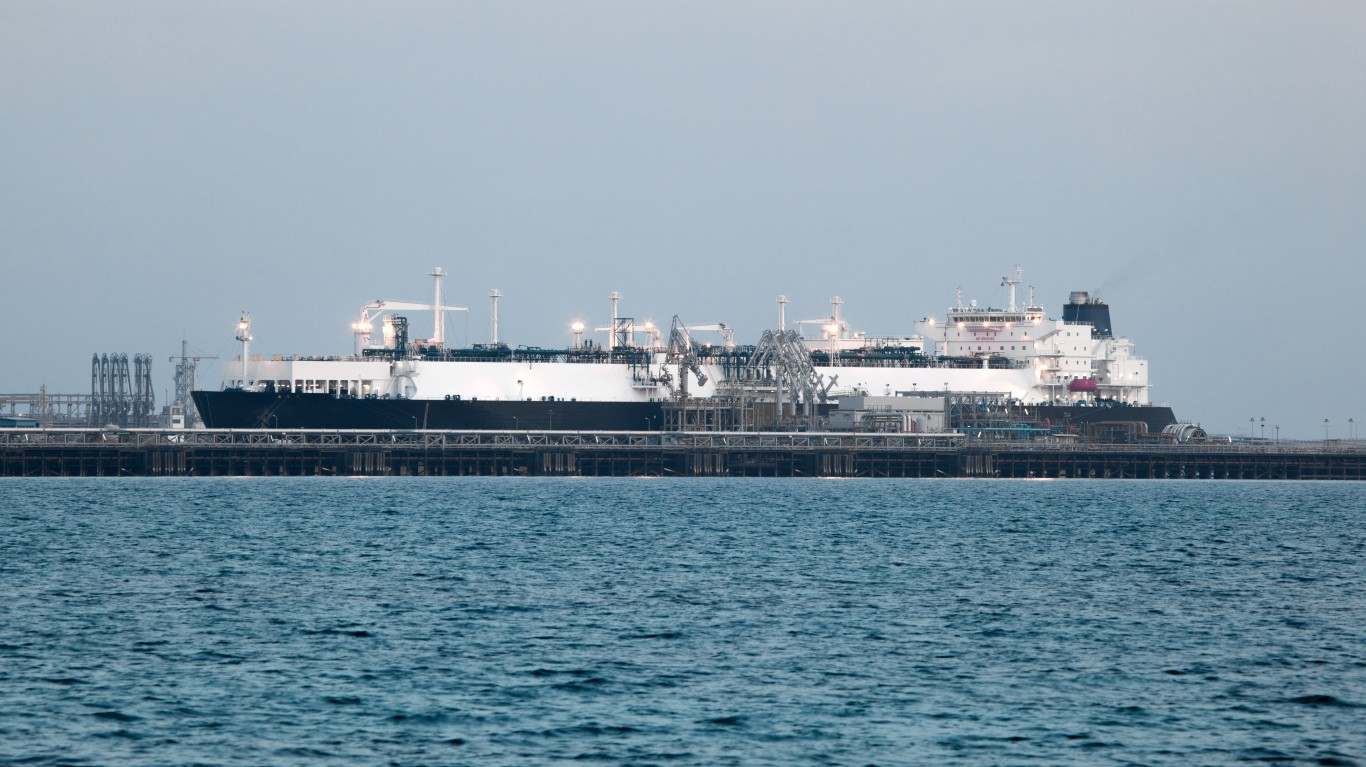
7. Kuwait
> Proved oil reserves: 101.5 billion barrels
> Reserves as a share of world total: 5.9%
> 2020 oil production: 2.7 million barrels per day
> 2020 GDP per capita: $51,962
> 2020 oil exports as pct. of GDP: 42.1%
[in-text-ad-2]

6. Russian Federation
> Proved oil reserves: 107.8 billion barrels
> Reserves as a share of world total: 6.2%
> 2020 oil production: 10.7 million barrels per day
> 2020 GDP per capita: $28,213
> 2020 oil exports as pct. of GDP: 9.2%
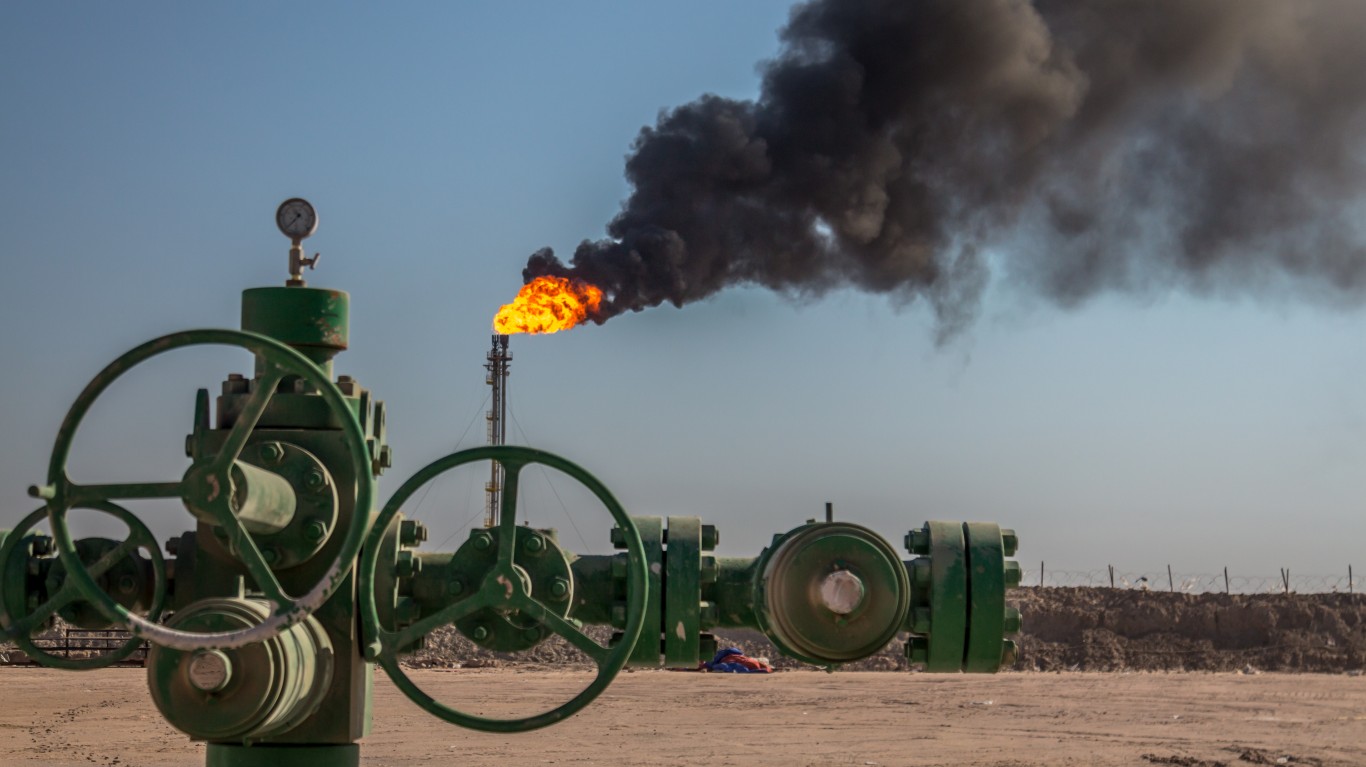
5. Iraq
> Proved oil reserves: 145.0 billion barrels
> Reserves as a share of world total: 8.4%
> 2020 oil production: 4.1 million barrels per day
> 2020 GDP per capita: $9,764
> 2020 oil exports as pct. of GDP: 39.6%
[in-text-ad]

4. Iran
> Proved oil reserves: 157.8 billion barrels
> Reserves as a share of world total: 9.1%
> 2020 oil production: 3.1 million barrels per day
> 2020 GDP per capita: $13,116
> 2020 oil exports as pct. of GDP: N/A
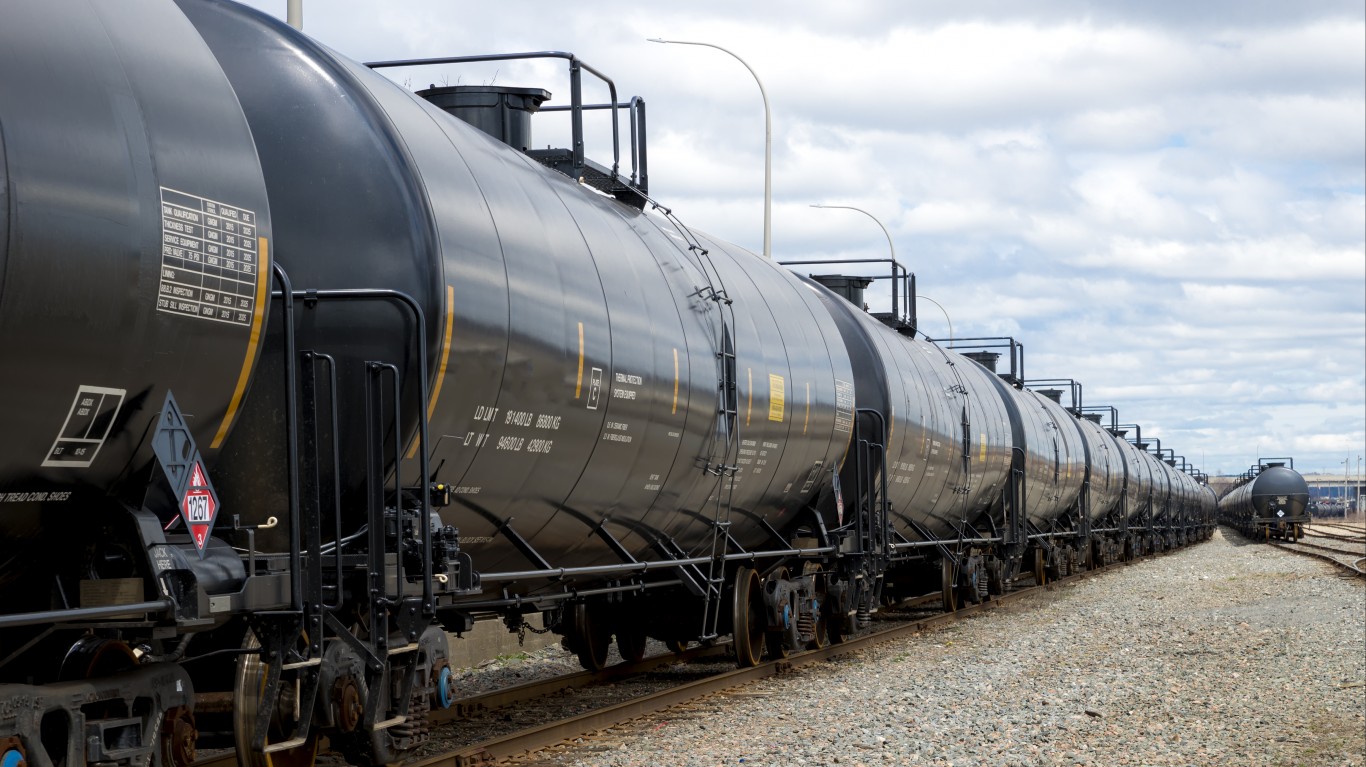
3. Canada
> Proved oil reserves: 168.1 billion barrels
> Reserves as a share of world total: 9.7%
> 2020 oil production: 5.1 million barrels per day
> 2020 GDP per capita: $48,073
> 2020 oil exports as pct. of GDP: 1.6%

2. Saudi Arabia
> Proved oil reserves: 297.5 billion barrels
> Reserves as a share of world total: 17.2%
> 2020 oil production: 11.0 million barrels per day
> 2020 GDP per capita: $46,762
> 2020 oil exports as pct. of GDP: 24.2%
[in-text-ad-2]
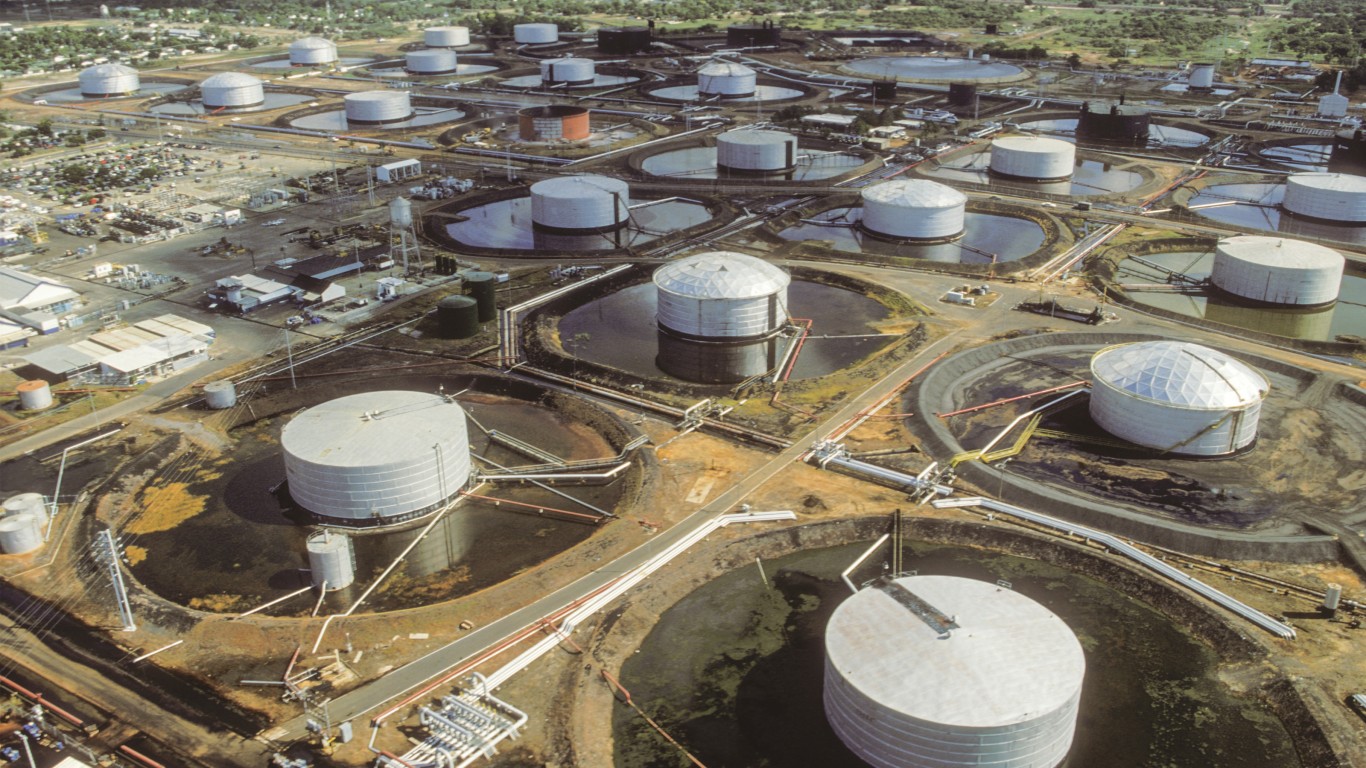
1. Venezuela
> Proved oil reserves: 303.8 billion barrels
> Reserves as a share of world total: 17.5%
> 2020 oil production: 539,761 million barrels per day
> 2020 GDP per capita: N/A
> 2020 oil exports as pct. of GDP: N/A
Methodology
To determine the countries that control the world’s oil, 24/7 Wall St. reviewed data on oil reserves from oil and gas company BP’s “Statistical Review of World Energy 2021.” Countries were ranked based on 2020 proven reserves — those quantities that geological and engineering information indicates with reasonable certainty can be recovered in the future from known reservoirs under existing economic and operating conditions. Data on GDP per capita in 2020 in current international dollars is based on purchasing power parity and is from the World Bank. Data on oil rents — the difference between the value of crude oil production at regional prices and total costs of production — as a percentage of GDP came from the World Bank and is for 2019.
The Average American Has No Idea How Much Money You Can Make Today (Sponsor)
The last few years made people forget how much banks and CD’s can pay. Meanwhile, interest rates have spiked and many can afford to pay you much more, but most are keeping yields low and hoping you won’t notice.
But there is good news. To win qualified customers, some accounts are paying almost 10x the national average! That’s an incredible way to keep your money safe and earn more at the same time. Our top pick for high yield savings accounts includes other benefits as well. You can earn up to 3.80% with a Checking & Savings Account today Sign up and get up to $300 with direct deposit. No account fees. FDIC Insured.
Click here to see how much more you could be earning on your savings today. It takes just a few minutes to open an account to make your money work for you.
Our top pick for high yield savings accounts includes other benefits as well. You can earn up to 4.00% with a Checking & Savings Account from Sofi. Sign up and get up to $300 with direct deposit. No account fees. FDIC Insured.
Thank you for reading! Have some feedback for us?
Contact the 24/7 Wall St. editorial team.
